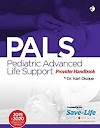Evidence-Based Geriatric Nursing Protocols for Best Practice



ACLS: Qquestion and Answer by (NHCPS) True or False: Synchroni…

BLS: Qquestion and Answer by (NHCPS) True or False: The jaw-thrust…

جميع كتب د. محمد المطري في الجراحة للتحميل Surgery books by dr…

جميع كتب التشريح - أناتومي للدكتور سامح دوس ِAnatomy books by…

Internal Medicine Books, Dr. Ahmed Mowafy (2020-2021) كتب الباطنة لـ د/…

لطلاب الطب البشري : أفضل مرجع تذاكر منه كل مادة (تجربتي الشخصي…

السلام عليكم بوست طويل مهم للدكاترة اللي ما زالت في بداية طريق ا…

Internal medicine Books Dr. Mahmoud Allam (2021) كل كتب الباطنة لـ د / …

PALS: Qquestion and Answer by (NHCPS) True or False: Shock may o…

Clinical Approach to Diagnosis - Salah Ibrahim كتاب د. صلاح إبراهيم لل…

جميع كتب د. محمد المطري في الجراحة للتحميل Surgery books by dr…

Download FREE Videos & PDFs of Board and Beyond USMLE STEP 1 …

BLS: Qquestion and Answer by (NHCPS) True or False: The jaw-thrust…

جميع كتب التشريح - أناتومي للدكتور سامح دوس ِAnatomy books by…

كتب و تفريغات و مراجعات الباطنة للدكتور محمد الشافعي Internal …

ACLS: Qquestion and Answer by (NHCPS) True or False: Synchroni…

لطلاب الطب البشري : أفضل مرجع تذاكر منه كل مادة (تجربتي الشخصي…

Internal Medicine Books, Dr. Ahmed Mowafy (2020-2021) كتب الباطنة لـ د/…

السلام عليكم بوست طويل مهم للدكاترة اللي ما زالت في بداية طريق ا…

Internal medicine Books Dr. Mahmoud Allam (2021) كل كتب الباطنة لـ د / …
✅ WE HAVE A TOTAL OF:
Books & Articles.
BTC: 16vRuNfaCwCHrjznKUzcT5UkgToXJDwcXj
USDT (TRC20): TAYUVSCVUe74neECmtYzoRpyNrhkRuhemS